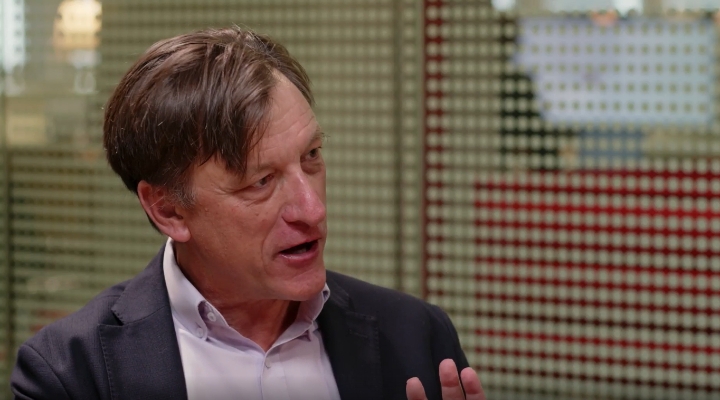
In this series of profiles, we ask leading fund managers to reveal everything from their investment strategy, to their views on cryptocurrencies, famous business leaders they look up to, and what they’d never invest in.
This time our interviewee is Tom Wildgoose, manager of the Nomura Global High Conviction Fund, which has a 5-star rating and has a Morningstar Quantitative Rating of Neutral.
1. Which sector provides the biggest investment opportunity as we approach the end of 2021, and why?
We look at investments on a stock-by-stock basis rather than trying to identify sectors of interest. We see upside in areas that were heavily impacted by the pandemic and have yet to fully recover such as certain retailers. We also see value in areas where Covid-related costs have lingered longer than people thought, and so have suffered near-term disappointment. This includes certain healthcare stocks in the US. Finally, we think consumer behaviour has altered and so we continue to like electronic payment processing related companies.
2. What's the biggest economic risk right now?
Clearly this is difficult to predict, but a potentially serious economic risk is a resurgence of the Covid-19 virus. We are seeing declining effectiveness of vaccines with serious consequences in Israel and a repeat of that across other well-vaccinated countries would be very unwelcome.
3. Describe your investment strategy
We look for quality at discount valuation, which means we look for good quality companies that are trading at a discount to their intrinsic value.
4. Which famous investor or business professional do you look up to, and why?
Charlie Munger for two reasons 1) his rational steadfastness and 2) his multidisciplinary mind-set. Irrespective of the short-term outcome, he sticks to rigorous rationality within his value investment decision-making framework. Within that framework he brings analytical processes from various fields, not just finance, to bear to make sure any decision is well thought through. His pithy answers to questions are also rather entertaining.
5. Name your favourite forever stock(s)
We have held Mastercard for many years. The company is well aligned to the long-term trends of electronic payments. It did have a difficult time during the pandemic due to the reduction in travel, but this is likely to recover over time.
6. What would you never invest in?
While we take a stock-by-stock approach it is difficult to see an energy exploration company meeting our threshold for quality, not to mention the environmental related considerations.
7. Growth or value?
As an investment style we prefer to stay neutral. Having said that we do focus on quality which is often overlooked as a very successful long-term approach to investing.
8. House or pension?
By pension I assume you mean, invest in stocks? If that is the case, I suggest you invest in stocks.
9. What are your thoughts on crypto?
It seems highly speculative and since the underlying asset does not generate a return on capital. It is difficult to see it as an investment.
10. What can be done to increase diversity in the fund management industry?
Perhaps more flexibility of working hours and more working from home.
11. Please give an example of how you’ve engaged with a company you invested in where you were particularly proud of the outcome? (Or disappointed!)
We have recently started a project where we connect companies that we consider to be leaders on ESG with others that are laggards. Often the laggards are in emerging markets and typically the connections are across sectors as well, meaning these are companies that would otherwise be very unlikely to meet. For example, we connected a European chemicals company with a Malaysian telecom company, which allowed the Malaysian company to learn from the European company on issues such as setting ESG targets. We believe this is a unique endeavour and is a way for us to actively make a contribution to improving the impact of the economy on the world. So far, the feedback has been really positive.
12. Best bit of advice you’ve ever been given?
I’m paraphrasing, but “the tide comes in and goes out, you just need to keep swimming in the right direction all the time”. This was from Charlie Munger and emphasises the need to keep executing your rational decision making irrespective of what is going on in the economy and world.
13. What would you do if you weren’t a fund a manager?
Farmer.

























